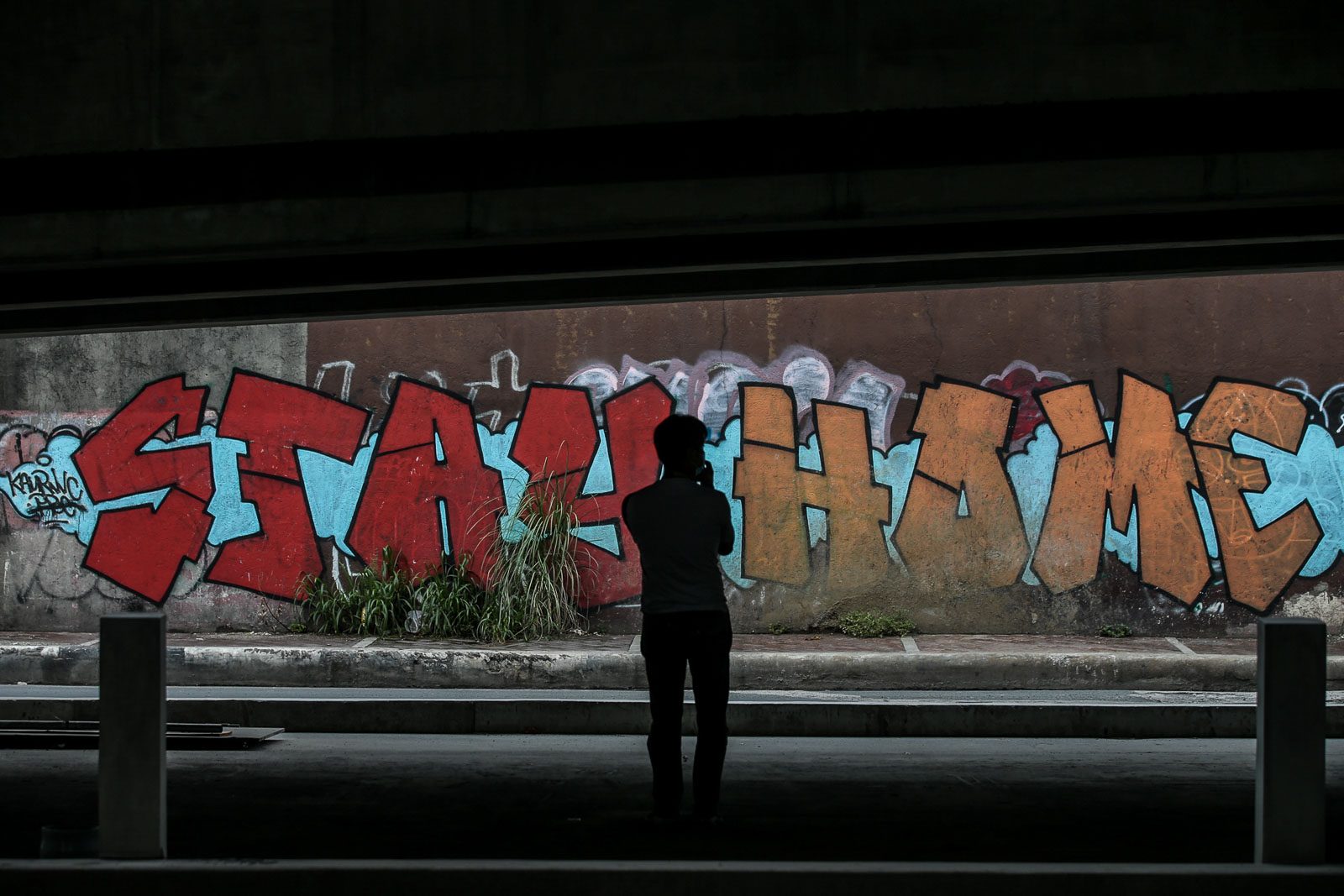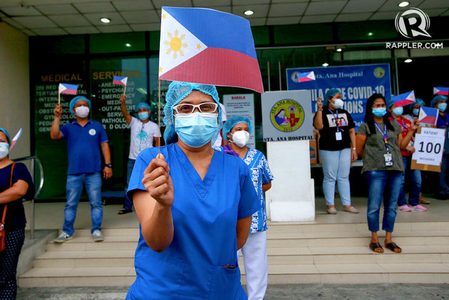SUMMARY
This is AI generated summarization, which may have errors. For context, always refer to the full article.

Duterte administration officials and representatives from over 100 medical societies held their first meeting to recalibrate the Philippines’ response to the coronavirus pandemic.
Following an urgent call to revisit the country’s pandemic response on August 3, the DOH said in a statement on Tuesday, August 4, that it sat down for the first of a series of meetings with over 100 medical organizations to discuss strategies to strengthen the Philippine pandemic plan.
The first meeting comes as the government reverted Mega Manila – Metro Manila, Laguna, Cavite, Rizal, and Bulacan – to a modified enhanced community quarantine (MECQ) after the nation’s top doctors warned health systems were overwhelmed, and that the Philippines was “losing its war against the coronavirus.”
The MECQ will last for two weeks or until August 18, during which time the DOH and medical societies, along with the government’s coronavirus task force and National Task Force COVID-19, will work to come up with improved approaches to at least 7 key issues earlier raised by the health sector relating to the pandemic.
Check Rappler’s tracker of the points raised here:
What took place?
A working group composed of representatives from both the DOH and medical groups was formed to come up with strategies for critical areas in the country’s pandemic response. These include the following:
- Health workforce deficiency
- Contact tracing and isolation protocols
- Transportation and workplace safety guidelines
- Proper distribution of emergency subsidies
- Testing strategy
- Coordinated implementation of protocols in local government and private sector
In a forum on Tuesday, Dr Lei Camiling-Alfonso, a technical specialist of the Philippine Society for Public Health Professionals, said the meeting saw officials agreeing to improve tele-consultations for medical matters and strengthen strategies for contact tracing. Medical groups also agreed to aid in the coordination and implementation of effective strategies for contact tracing among local governments.
Camiling-Alfonso described these areas as “low hanging fruit” that can be part of initial issues addressed during the MECQ.
PSPHP’s Dr Aileen Espina said testing czar Vince Dizon agreed to review the task force’s policy on rapid tests. Medical experts had long warned that over reliance on the test kits will muddle case finding isolation efforts, as such tests may miss “more than half of people with active, contagious illness.”
The DOH, for its part, presented its “coordinated response to defeat epidemic” (CODE) plan. The operations involve a 14-day effort centered on having local leaders and community members, along with health professionals, lead community engagement activities to promote health practices, do house-to-house symptom checks, and early isolation for active cases and their close contacts.
The idea was well received by the medical societies that urged a similar approach be done in workplaces, where there have been clusterings of cases.
Crunch time
Dr Antonio Dans of the Philippine College of Physicians and the Philippine Society of General Internal Medicine likewise called on other agencies such as the Department of Transportation, Department of Labor and Employment, Department of Information and Communications Technology, and Metro Manila Development Authority to work with them.
Both the DOH and medical societies said the next two weeks is crunch time to recalibrate and refine the country’s pandemic response.
Dans emphasized that workplace safety and the availability of safe transport options were crucial to curbing the spread of the virus. He said medical workers were not out to criticize them, but offered help “if we can join hands with them.”
“Pag hindi ho maayos ‘yung strategies sa iba-ibang lugar, ‘pag hindi ho maayos ‘yung strategies sa iba-ibang department, sa ospital din po ang bagsak kasi lalaganap po lalo ang COVID-19,” he said.
(If strategies are weak in other areas and other departments, it will fall on hospitals because COVID-19 will continue to spread.)
Health officials, meanwhile, thanked the medical community for its commitment to collaborate with them to address the government’s COVID-19 response.
“Rest assured that we will continue to work with our healthcare professionals in the coming days to come up with more concrete plans and a way forward by the end of the week. We look forward to this meaningful and timely collaboration,” the DOH said.
For the medical community, Camiling-Alfonso said the next two weeks are all about capitalizing on solutions that will have lasting effects even long after the MECQ.
“Two weeks are not enough to reverse all the problems we have in our health system. But what we need in the next two weeks is to maximize what we can – in our power – do,” she said. – Rappler.com
Add a comment
How does this make you feel?



![[Time Trowel] Evolution and the sneakiness of COVID](https://www.rappler.com/tachyon/2024/02/tl-evolution-covid.jpg?resize=257%2C257&crop=455px%2C0px%2C1080px%2C1080px)


There are no comments yet. Add your comment to start the conversation.